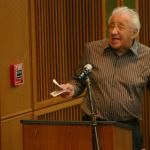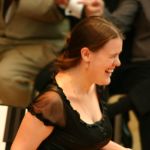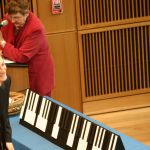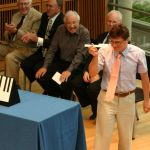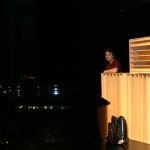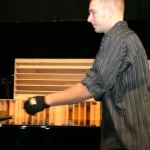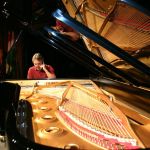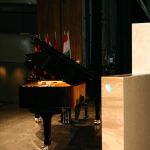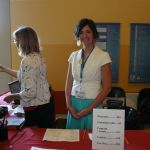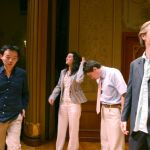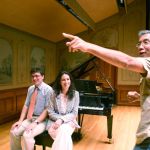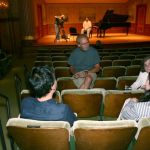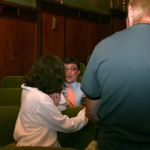About those first impressions: Round 2, Session 1
As we noted earlier, one of the abidingly wonderful aspects of CIPC is that everybody has a second chance to prove themselves. Now that we’ve reached the second round and returned to the top of the batting order, it’s time to revisit our first impressions and see whether our original thoughts have changed after a second hearing. On Friday afternoon, the original six players lived to perform again.
Program for July 31: Round 2, Sessions 1 & 2
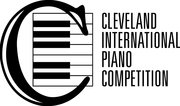
1:00 pm – Anna Shelest (USA): Bach’s Prelude and Fugue in E flat Minor, WTC I: 8, Chopin’s Sonata No. 3 in B Minor, Op. 58. 1:40 pm – Hoang Pham (Australia): Beethoven’s Sonata in E flat Major, Op. 7, Chopin’s Etude in G flat Major, Op. 10, No. 5 (Black Key), Adès, Darknesse Visible (1992). 2:20 pm – Olga Kozlova (Russia): Schumann’s Fantasie in C Major, Op. 17, Ligeti’s Etude No. 13 (L’escalier du diable). 3:15 pm – Jae Weon Huh (Korea): Scarlatti’s Sonata in F Major, K. 17, Schumann’s Kreisleriana, Op. 16. 3:55 pm– Yekwon Sunwoo (Korea): Ligeti’s Etude No. 10, (Der Zauberlehrling), Brahms’s Sonata No. 3 in F Minor, Op. 5. 4:35 pm – Kyoko Soejima (Japan): Bach’s Partita No. 5 in G Major, BWV 829, Vine’s Sonata No. 1 (1990).
7:00 pm – Dmitri Levkovich (Canada): Chopin’s Barcarolle in F sharp Major, Op. 60 Scherzo No. 2 in B flat Minor, Op. 31, Vine’s Sonata No. 1 (1990). 7:40 pm – István Lajkó (Hungary): Ligeti’s Musica Ricercata, Nos. 1-3, 7-10 Etude No. 10, (Der Zauberlehrling) Chopin’s Fantasy in F Minor, Op. 49 Waltz in A flat Major, Op. 42. 8:20 pm – Maria Masycheva (Russia): Haydn’s Sonata in E Major, Hob. XVI: 31, Brahms’s Seven Fantasies, Op. 116. 9:15 pm – Sean Chen (USA): Schumann’s Kreisleriana, Op. 16, Carter’s Caténaires (2006). 9:55 pm – Chun Wang (China): Schumann’s Fantasy in C Major, Op. 17, Messiaen’s Le loriot (Catalogue d’oiseaux, Book I: 2).
Top of the Draw: Round 1, Session 1
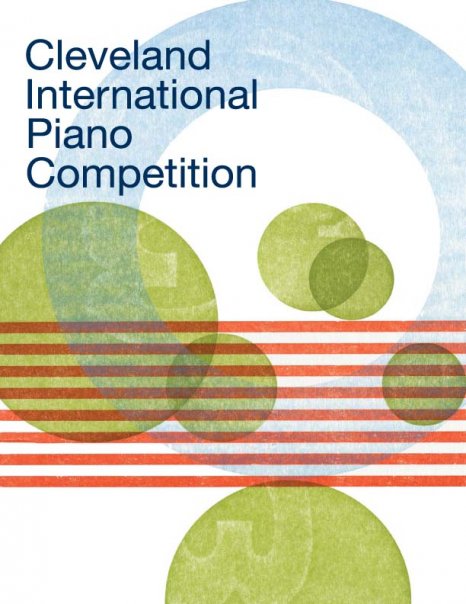
Arrival Day: They’re here!

When thirteen is your lucky number. Evgeny Brakhman (Russia) gets to put off his first round performance until Wednesday afternoon. Behind (L-R) WCLV's president, Robert Conrad, CIPC board president Rand Curtiss, jury chairman Peter Frankl and CIM president Joel Smirnoff. Photo: Sam Hubish
CIPC executive director Karen Knowlton looked relieved a few minutes after five o’clock on Monday when thirty-two of the thirty-three contestants were neatly arranged on chairs on the Mixon Hall stage at CIM, ready to draw for their slots in the competition schedule.




